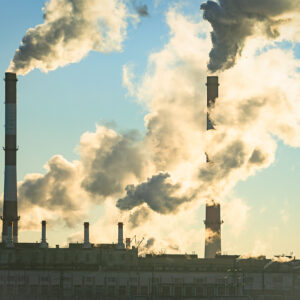The International Energy Agency may have started a firestorm with its blueprint for achieving “Net Zero by 2050.” Its measures demand a swift and immediate shift from petroleum to energy provided through sources such as wind, hydro, and solar power.
To avoid what it considers an impending climate “disaster,” the IEA has set short timetables for nations to cease investing in fossil fuels, end the sale of gas boilers and internal combustion engines, and force citizens to buy electric cars and trucks.
IEA executive director Fatih Birol justified its actions by stating, without “a total transformation of the energy systems that underpin our economies,” the world will fail to control world temperatures.
The G7 and the European Union jumped onboard in agreement in May. They jointly decreed that “International investments in unabated coal must stop now” and also agreed to move to phase out financing for all fossil fuel projects. EU Vice President Frans Timmermans, who agrees that “we need to get out of oil, gas, and coal,” chortles that, “I feel very supported in this by the IEA’s recent Net Zero report.”
While the U.S. and the other G7 nations are marching in lockstep with the IEA, many world leaders think the organization is in the wrong.
Saudi Arabian energy minister Prince Abdulaziz bin Salman, for example, called the International Energy Agency’s Net Zero by 2050 “a la-la land scenario,” even boasting that his country is increasing its oil and gas production capacity. Qatar’s energy minister Saad Sherida Al Kaabi mused the blueprint will actually drive up oil prices. “When you deprive the business from additional investments, you have big spikes” in prices, he said.
Russia’s Deputy Prime Minister Alexander Novak scratched his head: “The price for oil will go to, what, $200?” Norwegian Prime Minister Erna Solberg described the IEA’s roadmap as simply one of “many reports.”
The head of Australia’s Petroleum Production and Exploration Association, Andrew McConville, carped that the IEA only looked at one narrow formula for reaching Net Zero. Australia is looking at other options. Japan, too, has no intention of obeying the IEA.
Meanwhile, the British government is facing a “civil war” over a government mandate to replace gas boilers with electric heat pumps. Some fear that Biden-sized subsidies would be necessary to stave off a massive erosion of public support for the United Kingdom’s Net Zero emissions goal.
But nowhere is the opposition to the IEA’s blueprint more striking than in the developing world.
Speaking for the African Energy Chamber, Executive Chairman NJ Ayuk wagged his finger. “The idea … that every African will drive a Tesla by 2030 is not in any way connected to a sense of reality. In the real world, Ayuk notes, “Africa is set to exceed China in oil demand within the next 20 years and will be the world’s third-largest source of natural gas demand growth.”
Ayuk asks, “How are the 850 million Africans with no access to electricity going to have electric cars by 2030? Should Africans trust Westerners who for decades have stifled African electric grid development by refusing to fund energy projects not deemed “sustainable development”?
For Africans like Ayuk, the IEA report is insulting. “Our Western counterparts talk a good game,” he said, “but the fact is, to date, these same Western countries have invested little to no funding into Africa’s renewable space. A ban on fossil fuel production would bring about the collapse of many carbon-dependent African governments.”
Ayuk argues that, if the West refuses to fund fossil fuel projects, African governments will have little choice but to partner with China. “And giving China (or any foreign entity) such a monopoly,” he warns, “is a dangerous play.”
It appears African nations (like many others) intend to ignore the IEA and chart their own path toward building their economy and ending energy poverty. The 2020 Africa Youth Survey showed that “youth in Africa … want to share their own destiny.” Their leaders are mindful of this, and thus are choosing to tackle the more important priorities of ensuring their people have adequate food, clothing, shelter, electricity, highways, and other amenities the West takes for granted. They also understand affordable energy via fossil fuels is key to their development.
In short, it appears achieving “Net Zero” may provide the IEA and Western leaders a lovely virtue signal they can boast about at cocktail parties, but for many Africans, it’s less appealing than having high-speed internet and a refrigerator.


